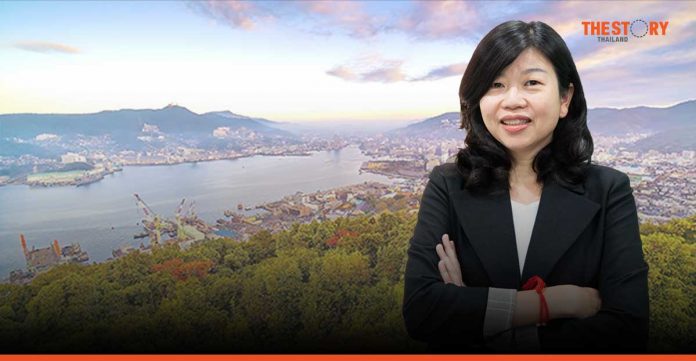Since 1987, sustainability has been clearly defined in the “Our Common Future” report by the United Nations as “development that meets today’s needs without compromising the ability of future generations to meet their own needs”.
Additionally, the ‘Fujitsu Future Insights Global Sustainability Transformation Survey Report 2023’ sought to understand the principal global trends and reality of sustainability transformation (SX), involving 1,800 senior management and decision makers in 9 countries around the world. The report highlighted sustainability as one of the top three management issues, alongside digitalization and customer satisfaction.
What’s the difference between Digital Transformation (DX) and Sustainability Transformation (SX)? Digital Transformation (DX) revolves around leveraging digital technologies to optimize operations, enhance customer experiences, and drive innovation. It integrates technologies like data analytics, automation, artificial intelligence, and cloud computing into various aspects of a company’s operations and business models.
The main goal is to improve efficiency, productivity, customer satisfaction, and stay ahead of the competition. Sustainability Transformation (SX) focuses on integrating sustainable practices and principles into a company’s operations, strategies, and culture. This is done to address environmental, social, and governance challenges and create long-term value. The main objective is to minimize environmental impact, promote ethical and socially responsible business practices, and ensure the long-term viability of the organization in a rapidly changing world.
Sustainability transformation (SX) is becoming important to businesses for various reasons. Climate change is one of the global risks that impact businesses worldwide. Thailand is one of the affected countries and urgently needs to take action on the climate change. The Thai government has announced more ambitious climate targets to achieve carbon neutrality by 2050 and net zero by 2065, which means many industries have to align their business direction accordingly.
Business competitiveness is another pressure on companies in order to foster customer loyalty, build brand reputation, increase cost-saving and efficiency, as well as improve risk management. Global trading and ESG standards are also forcing businesses to undergo sustainability transformation, such as the EU mandating sustainability reports for a wider group of companies under ESG indicators or the Carbon import levy coming into effect for carbon-intensive imports entering the EU.
Sustainability is now seen as a strategically important management priority. According to the ‘Fujitsu Future Insights Global Sustainability Transformation Survey Report 2023’, respondents increased the priority of digitization and sustainability by 77% and 68% respectively. Respondents also stated the main reason for prioritizing sustainability: 50% to satisfy customer expectations.
This was followed by responses to government regulations and guidelines at 40%, and responses to investor expectations for ESG investments at 38%. Other reasons include wanting to increase the value of products, services, and brands at 36%, satisfying the values of younger generations at 30%, improving opportunities to be selected as an ecosystem partner at 30%, providing new business opportunities at 27%, and attracting and retaining talent at 25%.
The only successful formula in Sustainability Transformation is “People Transformation + Digital transformation = Sustainability Transformation” or “PX + DX = SX.” Sustainability Transformation is accelerated by technology when businesses continue to adopt digital technologies and invest in people and culture transformation. To realize a regenerative society, organizations are advised to integrate sustainability into their businesses to build a sustainable society, where the environment, people’s well-being, and the economy are closely interconnected.
Sustainability is the today’s challenge for all organizations all over the world. Awareness of the environment, society, and stakeholders, as well as business transparency, has an impact on consumer trust. Thus, sustainability is a cross-industry collaboration that requires organizations to work with expert partners. Fujitsu’s key purpose is to make the world more sustainable by building trust in society through innovation, which is driven by internal values – Aspiration, Trust, and Empathy from all Fujitsu members. Fujitsu has developed an ecosystem to support businesses in solving global environmental issues, developing a digital society, and improving people’s well-being.
Article by Kanokkamon Laohaburanakit, Managing Director, Fujitsu Thailand
KBank acquires additional investments in Bank Maspion, increasing its stake to 84.55 percent
Royal Thai Government and Microsoft to envision Thailand’s digital-first, AI-powered future





